Description
In 2024 I finally put feet on the ground in Kenya and I finally understood what makes Kirinyaga (and Kenya as a whole) coffee so special. Much of Kenyan coffee is produced in more arid regions. As you get a little father away from Mt Kenya, the climate dried up quickly. Kirinyaga is one of the most lush environments in Kenya, quite jungle like and as many know, good rainfall and plenty of shade often makes the tastiest cup.
Growing the coffee is only half the battle to producing stellar coffee. What separates Kenya for most other producing nations is the way it organizes farmers into Farmer Cooperative Societies (FCS), basically every farmer, large or small, is connected to internal infostructure that gives them the support, knowledge and tools to grow the best coffee. These FCS’s are all locally owned, organized and run, letting them adopt to their microclimates and individual needs.
The last part, and equally as important but a little highly debated if good or bad, is the finally step in coffee production, the dry milling and auction system. Almost all Kenya coffees funnels through three processors, only one being owned by the Kenyans themselves. The good behind this, Kenya dry mills have some of the most impressive technology and facilities to produce absolutely stellar lots. In my travels I have never seen processing centers like they have in Kenya. One never sees bad export lots basically every lot is a gem. The bad, they are mostly foreign controlled and the FCS’s must use one of the three to end up with a final product. There are good laws in place to protect the farmers, but they have very little choice on how to finalize the processing and export the coffee.
Tasting Notes: A very clean, exotic and balanced cup of coffee. Kenyan coffees are known for their acidity and spice tones; this cup hit the classic Kenyan cup profile on the head without being overwhelming like some (very balanced in its tones). Not quite sizzling but a very noticeable lemony floral tone upfront at the light to medium roast points balanced with some herbal spice and fading into a nice chocolaty tone that lingers on the tongue. Fuller bodied and a bit darker toned than most Kenyan beans. Light roasts will swing the balance towards the floral citric side, darker roasts more towards the jazzy bakers chocolate alley. Holds up into 2nd crack for you dark roast fans. Low acidity and strong bittersweet chocolate tones with the traditional Kenyan spice note that leaves a very smoky tone on the pallet.
Roasting Notes: Clean, great screen and easy to roast. If you like a little acidity, this cup shines at a nice medium roast. Lighter roasts work well but only for very citric floral coffee fans. Right around 2nd crack to just into it will reduce the acidity pretty drastically from the lighter roast points. a 3-4 day setup really smoothed out the cup and brought forth a much greater depth of flavors.
About Kii:
On the eastern foothills of Mount Kenya, the Kii washing station built in 1995 and, since 1997, part of the Rungeto Farmers Co-operative Society receives cherries every season from roughly 850 to 1,200 smallholder families farming plots of barely a third of a hectare at 1,650–1,900 m a.s.l. on red-volcanic soils fed by the Kii River, whose clear water supplies the mill’s double-washing process. Growers deliver SL28, SL34, Batian, and Ruiru. 11 varieties developed or selected by the historic Scott Labs—and the cherries undergo strict hand sorting before passing through a three-disk Agaarde pulper; the pulp is converted to compost and the water is recirculated, shrinking the mill’s water footprint.
Parchment is dry-fermented for 18–36 hours, given a soaking rinse for extra cleanliness, and then dried on raised beds for 8–14 days, with frequent turning to ensure uniformity and preserve Kirinyaga’s hallmark acidity.
Kii holds Fairtrade certification and has invested in tiled washing channels, covered fermentation tanks, and ongoing producer training; these efforts paid off in 2017 when a Kii lot fetched the highest price in five years at the local auction. Beyond paying cash on delivery and quality premiums, the co-operative offers workshops on composting, shade management, and biological pest control, bolstering climate resilience and diversifying household income. In this way, Kii blends varietal heritage, processing innovation, and social sustainability, turning Kirinyaga’s microclimates into coffees treasured worldwide for their clarity and vibrant fruit acidity.
Kirinyaga coffee always holds a special place in my heart. My earliest coffee memories involved Kirinyaga coffee. Garry Burman (well before Burman Coffee was in existence) was always a coffee head, I remember helping my mother make him pour overs of his favorite brew when I was only a couple feet tall. Golden Kirinyaga coffee from Victor Allen’s was his favorite premium special coffee, not an everyday item, but one for special occasions. Even back then Kenyans were very expensive and rarer coffees. I remember the first fathers day I was actual able to buy him something myself from saved money, it was a bag of Golden Kirinyaga coffee. After starting BCT in 2002 we often worked with Victor over numerous coffees and origins (including Kirinyaga) but unfortunately Victor left this world a few years ago. Here is a cup to you Mr. Allen! Thank you for spreading the passion of this lovely origin.
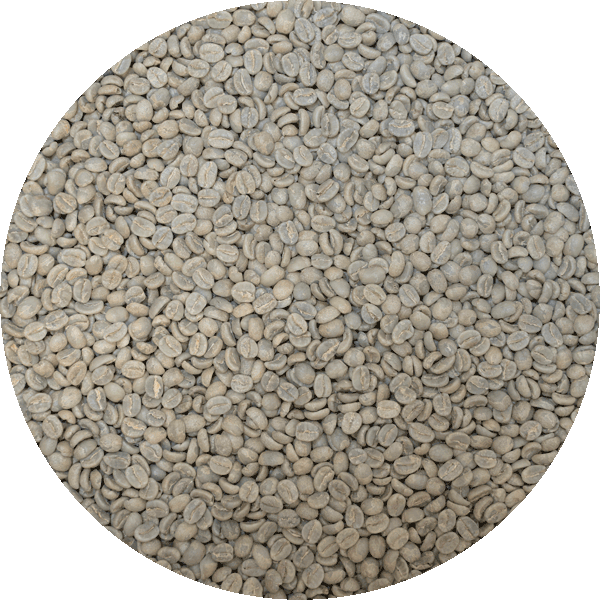
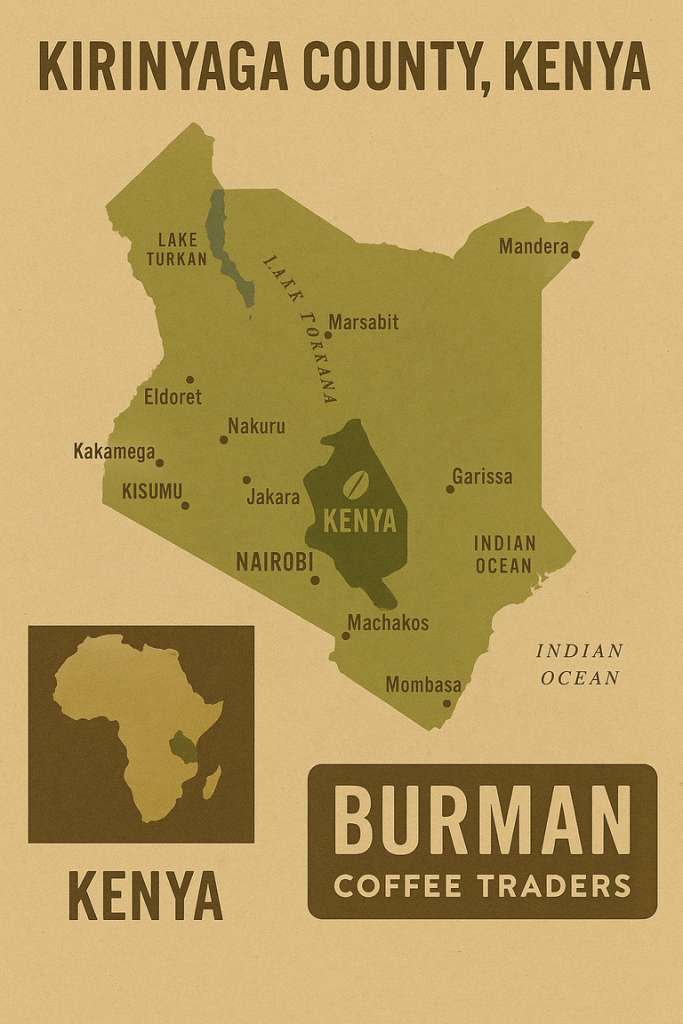
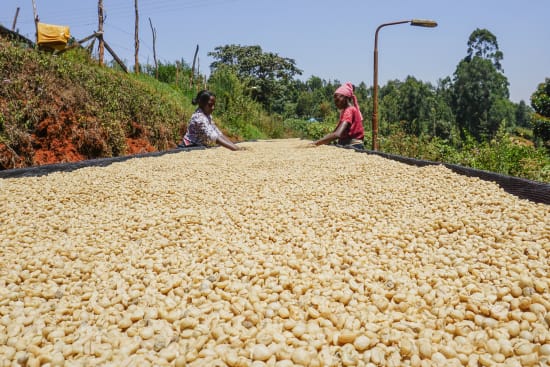
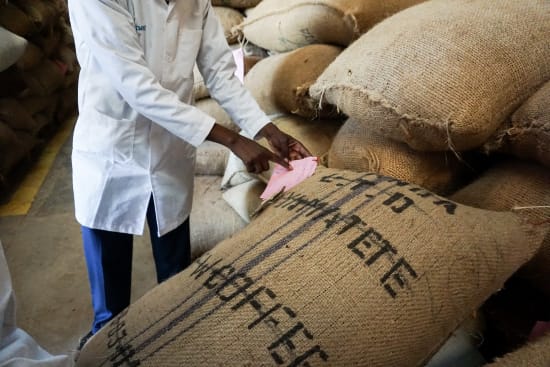
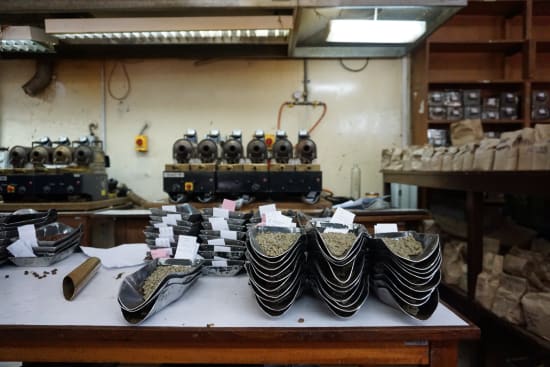
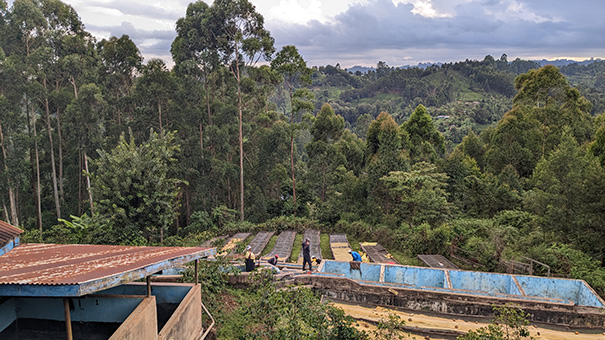
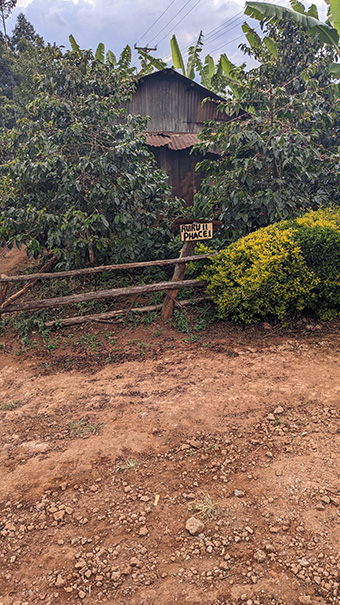
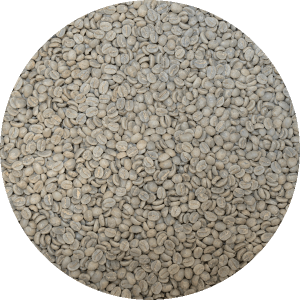
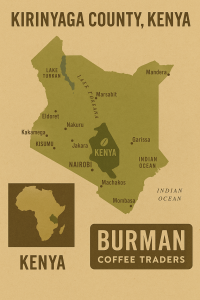
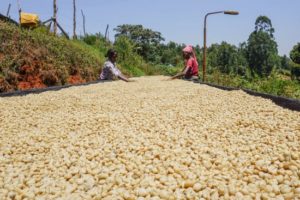
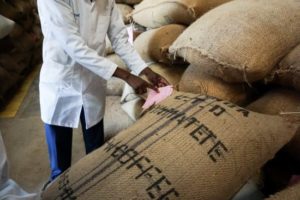
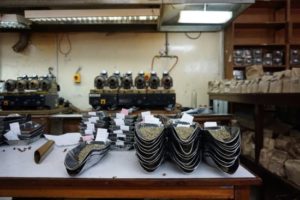
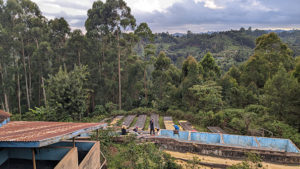
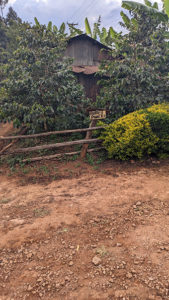
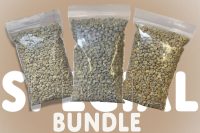
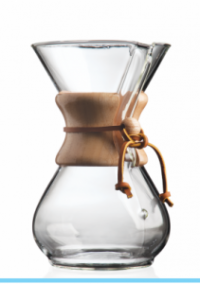
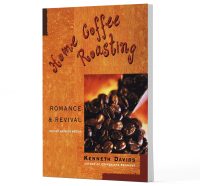
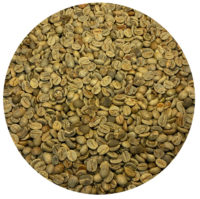

Reviews
There are no reviews yet.